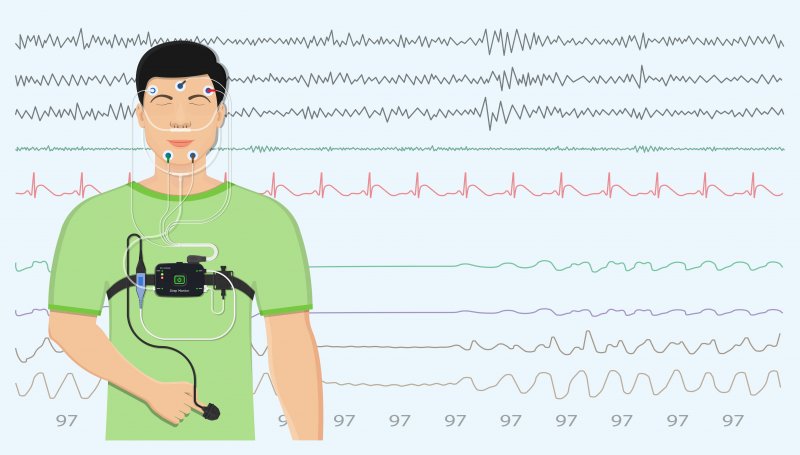
Sleep apnea is prevalent in approximately 18 million Americans! However, many people aren’t diagnosed with the condition. To get an official diagnosis, there are a few steps that need to be taken, and this often includes an at-home sleep apnea test. This is an easy, cost-effective way to get to the root of the problem so steps can be taken to give you the restful night of sleep you deserve. Continue reading to learn more about sleep apnea tests and how they work!
What Is an At-Home Sleep Apnea Test?
A home sleep apnea test is a portable breathing monitor that you wear overnight. It is made to help diagnose obstructive sleep apnea at home. As you sleep it monitors your breathing and oxygen levels to detect and measure when breathing ceases, also known as “apneas.” However, at-home sleep apnea tests do not determine the quality of your sleep. Common metrics measured during an at-home sleep apnea test include:
- Respiratory activity
- Heart rate
- Blood oxygen level
- Nocturnal movement
- Snoring events
Does The Test Work?
To complete an at-home sleep apnea test, there are three main steps:
- Get a Prescription: To take an at-home sleep apnea test, you will need to get a prescription from your doctor. Schedule an appointment with a sleep apnea dentist. During your visit, they will ask about your symptoms and pre-screen you for sleep apnea. Based on their assessment, they can order the prescription and explain how the testing kit works.
- Take the Test: According to your sleep dentist’s instructions, take the test. To ensure a more accurate reading, it’s a good idea to avoid napping, caffeine, alcohol, and late meals on the day of the test.
- Review the Results: When your test is complete, your sleep apnea dentist will interpret the data and determine if your symptoms qualify for a sleep apnea diagnosis. Then, they will work with you to determine the best course of treatment for you.
What Are the Benefits of an At-Home Sleep Apnea Test?
There are many different benefits of completing an at-home sleep apnea test instead of one in a lab. Here are just a few of them:
- Comfortable: You get to sleep in your own bed instead of in a lab setting.
- Convenient: You don’t need to schedule and drive to a sleep clinic. Just sleep like normal.
- Affordable: At-home tests are often covered by insurance and usually end up being more affordable.
- Shorter Wait: Getting an appointment at a sleep clinic can take time. With an at-home test, you can get your results back faster.
If you think you might have sleep apnea, don’t let it go diagnosed. By scheduling an appointment with a sleep dentist, you can work towards obtaining a diagnosis and getting the treatment you need for a sounder sleep!
About the Author
Dr. Dean Hutto is an experienced sleep apnea dentist who has been working in the field for more than three decades. He earned his dental doctorate from the University of Texas Dental School in Houston and is a proud member of numerous professional organizations, including the American Academy of Dental Sleep Medicine. If you think you might have sleep apnea, he’d be happy to welcome you in for sleep apnea testing and treatment. For more information on sleep apnea tests or to schedule an appointment at his office in Baytown, visit his website or call (281) 422-8249.
